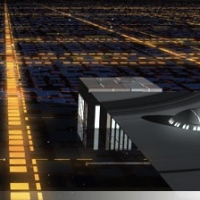Be Careful: The Internet Is Real Life, Too

There is a widely held misconception that the digital world and the physical world are two completely separate entities, neither of which affects the other. Those who would be disabused of this fallacy need look no further than the death of Amanda Todd, a Vancouver, BC, teen who was driven to suicide by a relentless stream of online and offline harassment.
Even as news of this tragedy was unfolding, moderators at Reddit were rushing to defend "Violentacrez"—one of the site's most popular admins and one who'd been enabling and perpetuating this very same kind of sexual harassment on a massive scale. After an investigative reporter linked his online and offline identities, he, too, discovered that actions online can have offline consequences—he was fired from his job the next day.
It's undeniable that we experience the offline and the online world in drastically different ways. Perhaps this difference is what leads us to feel as though the online and offline worlds are two separate things. Nathan Jurgenson has coined the term digital dualism to refer to this notion, as well as the idea that anything that happens online is trivial or insignificant.
We see this latter belief reflected in the common ways of referring to the offline world, like IRL—in real life. If only the offline world is real life, what then do we make of the Internet, where people bank, shop, and form new friendships every day?
Unfortunately, I sometimes see this same attitude spill over into software development. When people prioritize adding new features over fixing security problems that could cause serious loss for customers, I can't help but think that a different, less flattering set of ethical standards has somehow come into play.
We roundly condemn an electrician who leaves live wires exposed or a construction worker who inadvertently leaves off a manhole cover. However, when software businesses don't back up their users' work or don't adequately protect customers' private data from disclosure, any resulting calamity is somehow treated as an act of God that could never have been anticipated or prepared for.
Even though we are building structures of pure thought-stuff, as Fred Brooks would say, when those structures collapse, they can have just as great an impact on people's lives as structures made of steel.
I challenge you to appreciate that online and offline are the same thing and that each has consequences for the other.

